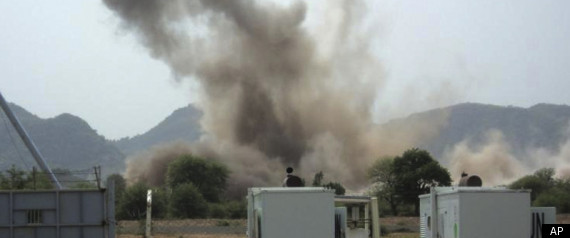South Sudan is gearing up for its independence celebrations, but for the United Nation's newest country, formidable challenges lay ahead. Weeks before it formally breaks off from Sudan, the south is already under attack while its substantial oil resources hold out the promise of wealth but the threat of waste and corruption.
The city of Abyei, control of which is disputed by the north and south, has been occupied by 5,000 Sudanese soldiers for the past three weeks, forcing its 20,000 residents to flee. Sudanese President Omar Al-Bashir is threatening to block the pipeline carrying oil out of South Sudan unless it hands over half of its oil revenue.
Armed militias backed by Al-Bashir are wreaking havoc across South Sudan, which Jack Kalpakian, a political scientist at Al-Akhawayn University in Morocco and a native of Sudan, said is the most immediate threat to the south's viability. Acknowledging the dangers, the United Nations Security Council authorized the deployment of 4,200 Ethiopian peacekeeping soldiers in the region, ensuring the withdrawal of Sudanese troops on Monday.
"The north will accept the independence of the south, and then undermine it," Kalpakian told The Media Line. "The north is sponsoring paramilitaries in the South. The south's challenge is to integrate these movements into the Sudan People's Liberation Army (SPLA)." The SPLA was the south's main rebel movement which spearheaded the insurgency against the north.
Independence has been a lengthy and precarious affair for South Sudan. A 22-year civil war between north and south ended in 2005 followed by a referendum on independence in January, with the South Sudanese overwhelmingly endorsed secession. South Sudan is one of the worlds least developed countries. Even basic information about the country, such as its estimated population of eight million people, is subject to dispute.
At least 16 people, including eight women and children, were killed when a Sudanese war plane bombed a village in the Nuba mountains, which f has been the scene of daily aerial attacks in a new war along the country's volatile north-south border.
Kalpakian said that if the paramilitary movements arent disbanded, the country risked deteriorating into a failed state. Worse, Kalpakian predicted the south could encourage insurgency in regions of the north such as Darfur and South Kordofan, which are engaged in their own rebellions against the government.
U.S. Secretary of State Hillary Clinton on Monday expressed concern about serious human rights abuses and ethnic violence in Sudan's flashpoint border province of South Kordofan.
"Tens of thousands of people have been driven from their homes, and there are reports of very serious human rights abuses and violence targeting individuals based on their ethnicity and political affiliation," Clinton said.
Abyei was granted special status and jointly administered by representatives of both the north and the south. The north said it was forced to send in troops following a South Sudanese ambush which killed 22 northerners.
A report issued by the European Union titled "The EU and Sudan: On the Brink of Change," warned of the high likelihood of South Sudan becoming a failed state, even if the international community maintained its current level of assistance and support.





